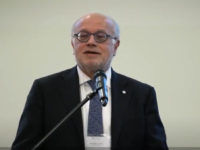The role of the public and the public interest has factored prominently into many of the Law Bytes podcast conversations. For the 100th episode, Osgoode Hall Law School Professor David Vaver, widely viewed as Canada’s leading IP expert, joins the podcast. The recipient of the Order of Canada, Professor Vaver provided the scholarly grounding for the emergence of user rights in copyright in Canada and around the world. In this episode, he gives a masterclass on the history of copyright, the emergence of user rights, Supreme Court copyright jurisprudence, and potential future copyright reforms.

Fair Dealing by Giulia Forsythe (CC BY-NC-SA 2.0) https://flic.kr/p/dRkXwP
Copyright
The Liberal Election Platform: Government Picks Internet Regulation Over Internet Affordability
The Liberal party released its election platform yesterday and perhaps everything you need to know can be gleaned from the fact that Canadian Heritage Minister Steven Guilbeault posted multiple tweets about plans for new cultural spending initiatives and Internet regulations in French without a single English language tweet. This is surely not a coincidence since the government’s digital policies have long been designed to curry favour in Quebec, even at risk of angering voters in the rest of Canada. Based on decision to forge ahead with Internet regulations with enormous implications for freedom of expression, alienating voters in the rest of Canada that have raised concerns with policies such as Bill C-10 is not a worry for the Liberal government.
Neither, it would seem, is the affordability of Internet and wireless services, which do not receive a single mention or direct policy measure. In doing so, the party has seemingly abandoned wireless competitiveness as an issue and unequivocally sided with the big telecom companies despite presiding over some of the world’s most expensive wireless services. The party platform is titled “Forward for Everyone” but not everyone moves forward in quite the same way with big telecom companies moving further ahead than Canadian consumers.
The Conservative Election Platform: Freedom of Expression Commitment Tainted By Support for Payments for Links, Restrictions on Fair Dealing
The Conservative Party released its election platform yesterday, providing a lengthy document that covers a myriad of policy issues. From a digital policy perspective, there are positions sprinkled throughout the document, covering everything from a new innovation policy (an issue that the Liberals de-emphasized over the past two years and the Conservatives are right to target) to labour rights for gig workers.
On many issues, the reality is the policy platform isn’t all that different from the Liberal government’s approach.
The Law Bytes Podcast, Episode 98: Kim Nayyer on the Supreme Court of Canada’s Landmark Access Copyright v. York University Copyright Ruling
The Supreme Court of Canada recently brought a lengthy legal battle between Access Copyright and York University to an end, issuing a unanimous verdict written by retiring Justice Rosalie Abella that resoundingly rejected the copyright collective’s claims that its tariff is mandatory, finding that it had no standing to file a lawsuit for copyright infringement on behalf of its members, and concluding that a lower court fair dealing analysis that favoured Access Copyright was tainted. The decision removes any doubt that the Supreme Court remains strongly supportive of user’s rights and vindicates years of educational policy in shifting away from Access Copyright toward alternative means of ensuring compliance with copyright law.
Kim Nayyer is the Edward Cornell Law Librarian, Associate Dean for Library Services, and Professor of the Practice at Cornell Law School. She appeared before the Supreme Court in this case, representing the Canadian Association of Law Libraries as an intervener. She joins the Law Bytes podcast to talk about the case and its implications for the future of copyright, education, and collective rights management.
Same Old Spin: Why Access Copyright Needs a Reality Check on Canadian Copyright
Last week’s Supreme Court of Canada copyright decision in Access Copyright v. York University has unsurprisingly been applauded by the education community, which having faced years of litigation launched by the copyright collective, now finds its position vindicated. With the court resoundingly rejecting Access Copyright’s claims that its tariff is mandatory, finding that it had no standing to file a lawsuit for copyright infringement on behalf of its members, and concluding that a lower court fair dealing analysis that favoured the copyright collective was tainted with “a fairness assessment that was over before it began”, there is little doubt about which party prevailed. Yet Access Copyright has returned to its longstanding playbook of downplaying Supreme Court decisions and misleading its own members in the process.











